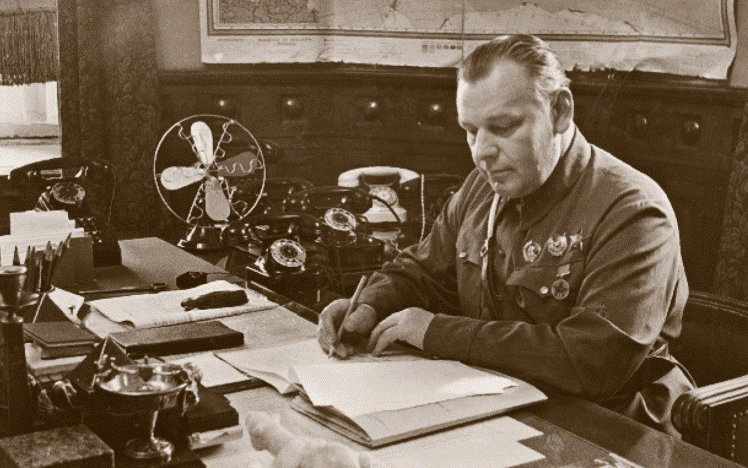OCTOBER 16, 2021 – I recently finished viewing yet another Russian TV series—Vlasik: The Shadow of Loneliness. It’s about Nikolai Sedonovich Vlasik, who rose from obscurity to become Stalin’s head of personal security in the 1930s and through WW II (“The Great Patriotic War”). As I’ve found with other productions by Epic Media (and its rival, Star Media), casting, costuming, set design, storyline, acting, directing, and over-all production values are extraordinary.
Also remarkable is how well hard-core vodka consumption is portrayed. Some actors are so good at pouring and downing Russia’s national beverage, the viewer is convinced that the clear liquid on set isn’t water and the actors aren’t merely acting. The best drunk I’ve ever seen on film is played by Egor Klineiv in the role of Stalin’s younger son, Vasily, a terribly mixed-up kid who tries ever so desperately to win favor with his terribly mixed-up father (think for a moment, “You-Know-Who, Jr.”). Despite having shot down some Nazi fighter planes (off camera), the kid’s an abject loser. Again, the viewer is left to conclude that the drinking part, at least, is no act.
As usual in many Russian film productions, Vlasik gives center-stage treatment to art, music, and literature (including a play by German romantic poet, Friedrich Schiller, no less). After all, we’re talking Russia, which, despite its many tragic shortcomings, assigns a premium to the fine arts—even of an enemy culture.
The series is as much about Stalin as it is about Vlasik, not to mention a host of other historical figures of the times. Lavrentiy Beria, for example, evil manipulator of Stalin’s paranoia, plays a central role. (The actor who portrays him, Adam Bulgachev, has been cast as Beria in several other Russian TV series. Bulgachev certainly looks, acts the part.).
Vlasik’s treatment of Stalin renders him far less inscrutable than his portrayal in archival film footage. In his exchanges with people close to him, Stalin projects the better elements of humanity—humor and intellect; even love, believe it or not—but they become enslaved, then overwhelmed, by tragic paranoia. If Stalin once had a friend—Sergei Kirov, party leader in Leningrad, who was assassinated by the husband of Kirov’s lover, if we are to believe the film’s version of an historically unsettled matter—the Soviet leader would never have another. And as Stalin tells us—then proves—repeatedly, “I know everything about everybody.” This goes hand-in-glove with his paranoia.
In the end, Stalin was far more complex than his nemesis, Hitler, even if the resulting record of inhumanity was the same in each case. What Vlasik provides in addition to insights into the “Man of Steel” is a view into human character at large. As Vlasik himself asks, “How is it that millions of people could rat one another?” The film provides suggestions: fear, greed, the lust for power—and the instinct for survival. If Stalin—or Hitler, for that matter—was a tyrant, the ultimate tyranny reigns among the abettors—in their many millions.
Vive Tolstoy!
(Remember to subscribe to this blog and receive notifications of new posts by email.)
© 2021 by Eric Nilsson
